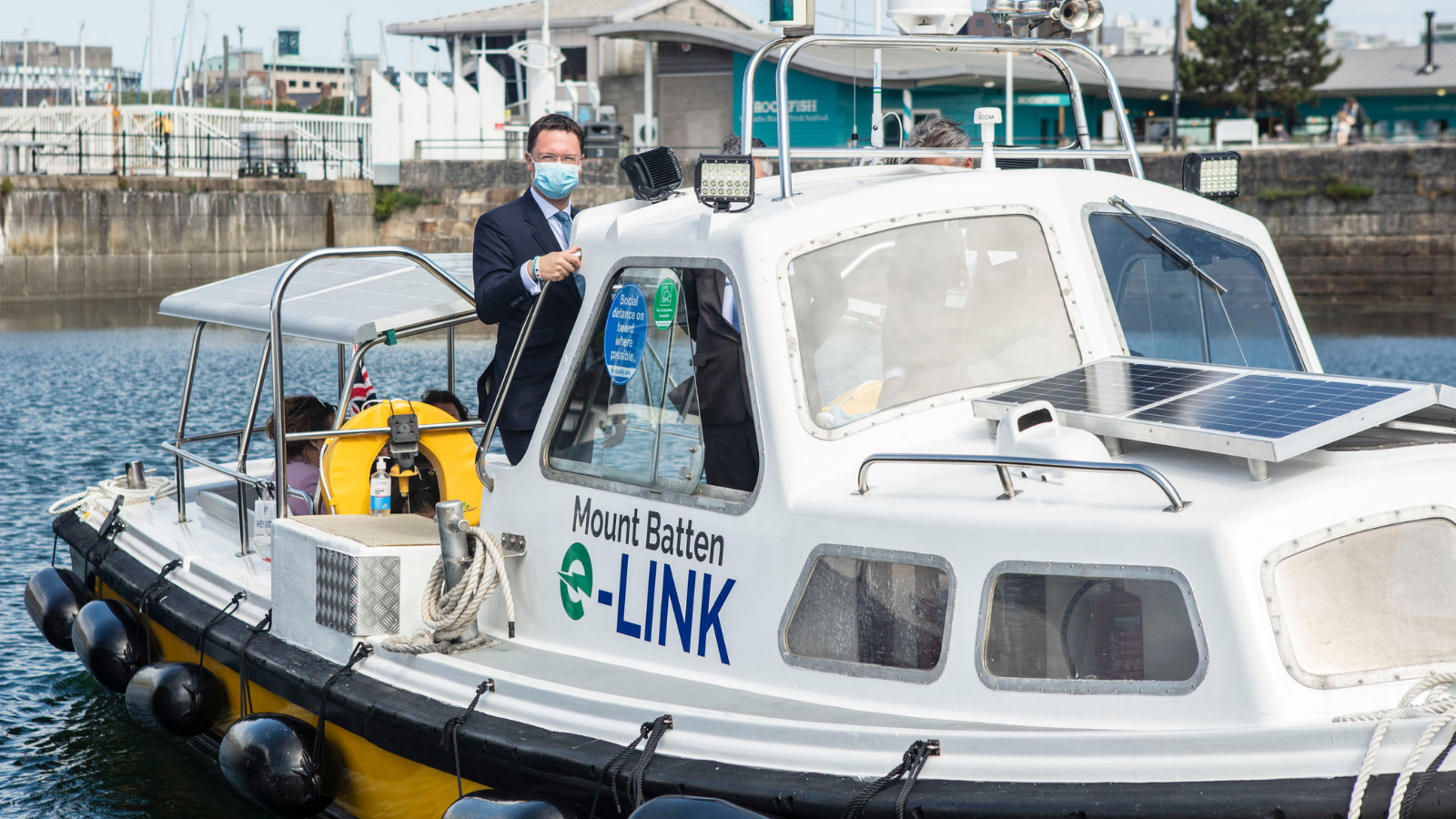Pioneering the development of electric maritime vessels

The University of Plymouth is among the UK’s leading proponents of clean maritime research and innovation, something reinforced by its ranking as the number one university globally linked to the United Nations’ Sustainable Development Goal number 14: life below water.
Combining disciplines as varied as maritime cyber and marine autonomy, advanced engineering and the arts, it is pioneering a solutions focused systems thinking approach to tackling the challenges being faced across the marine and maritime sectors.
This has been emphasised in recent years by its pioneering work supported through the £6.4million Environmental Futures and Big Data Impact Lab and the £4million Marine Business Technology Centre, both part-funded by the European Regional Development Fund. This has enabled collaborations with local small businesses and the wider scientific community to encourage and support the development of electric maritime vessels in and around Plymouth Sound.
The e-Voyager project was designed to reduce the environmental impact of maritime transport on our coastal waters.
Firstly, the University began working with city-based firm Plymouth Boat Trips and a range of other partners to develop the UK’s first sea-going electric ferry. The e-Voyager project was designed to reduce the environmental impact of maritime transport on our coastal waters.
The existing vessel was completely rebuilt, with its power now generated by repurposed, Nissan Leaf batteries, meaning they will need almost no maintenance and have clear commercial benefits for businesses in the marine sector.
Scientists from the University carried out research during the build, measuring emissions including noise pollution, air pollution and fuel consumption. They are also continuing to work with the company now the vessel is in service, to assess its ongoing environmental and regulatory impact.
At the same time, the University has supported the Mount Batten Ferry’s switch from diesel to electric power. Owned and operated by Universal Marine Services Ltd, the vessel carries over 200,000 passengers a year, on more than 18,500 crossings.
Until recently, two vessels – Copper and sulphur – have been used in rotation on the route, with their power provided by diesel engines. However, support from the University provided the funding to refit Copper with an electric motor that is now powering its daily journeys.
The University is also continuing to support the ferry operators by using sensors to monitor emissions and air pollution.
These projects have been integral to Plymouth being recognised as a hub of excellence and innovation in the clean maritime sector. And they are now being expanded on, to make the benefits of electric maritime innovation more widely available across the city.
The Marine e-Charging Living Lab (MeLL) will see Plymouth become the first city in the UK to install a network of shore-side charging facilities for its expanding fleet of electric maritime vessels.
It is being led by the University of Plymouth in partnership with Plymouth City Council, Princess Yachts Limited and Aqua SuperPower, and has received more than £570,000 funding as part of the Clean Maritime Demonstration Competition, funded by the Department for Transport and delivered in partnership with Innovate UK.
Between now and March 2022, it will identify suitable locations for charging facilities that can be easily linked to the National Grid while meeting both consumer and commercial demand. It will also develop and deploy an array of sensor technologies that can assess the environmental and operational impacts of e-charging.
More information
Email: alan.williams@plymouth.ac.uk
| Public funding | |
|---|---|
| £570,000 | Innovate UK |
